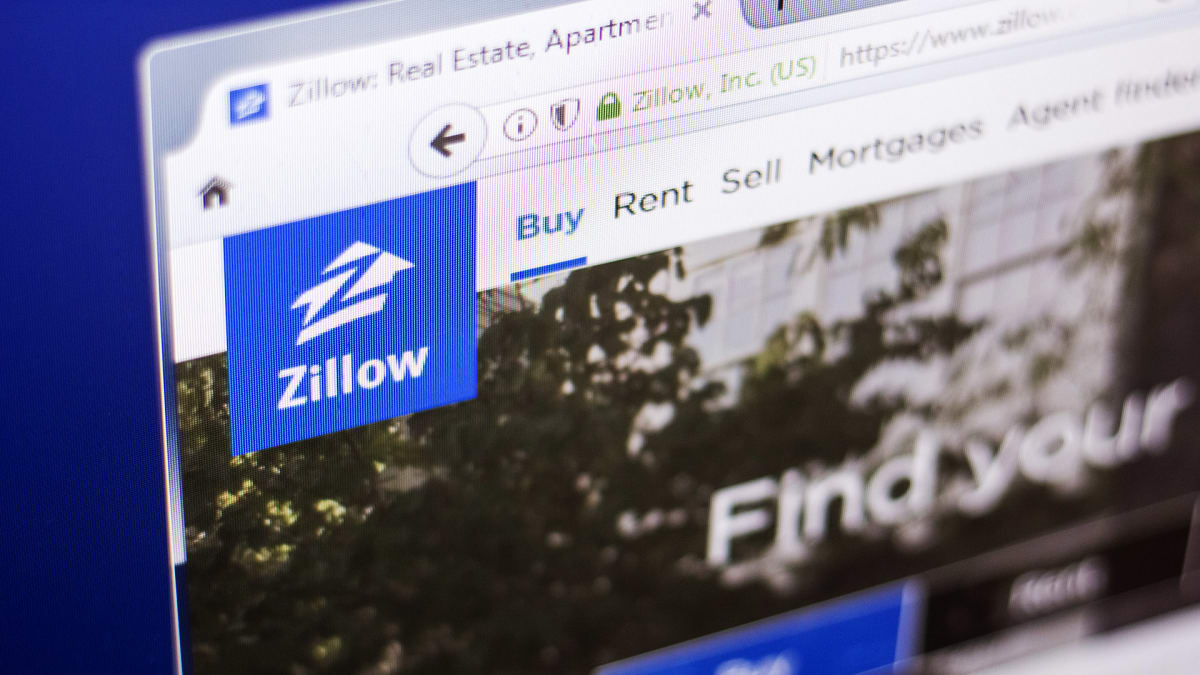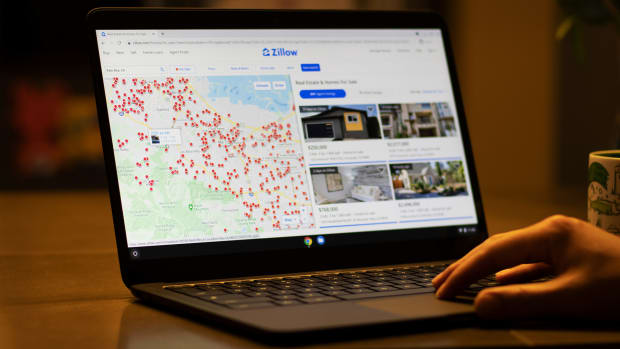
Zillow (ZG) reported Q4 2022 earnings on Feb. 15, and provided analysts and investors with a surprising picture.
Total Q4 revenue came in at $435 million, beating estimates of $413 million. Part of that cheery top line stems from a variety of cost-cutting measures the real estate app took earlier in the year to shore up revenue. Zillow cut approximately 300 jobs in October in an effort to become a "housing super app," hyper-focused on growth.
DON'T MISS: This Might Be a Good Sign for the Housing Market

Shutterstock
Zillow Foresees Long-Term Housing Market Volatility
Zillow CEO Richard Barton fielded questions from analysts relating to the health of the underlying business on Wednesday, but perhaps his most illuminating one was in response to a rather metaphysical question.
"Does your crystal ball tell you that things are troughing in this March quarter?" Evercore analyst Mark Mahaney asked on the call.
"I think the crystal ball is hard as you all know better than most and the crystal balls, no matter what you're trying to predict right now are particularly foggy and volatile still, given the stream of conflicting data that we're getting every day," Barton said. "And is the real estate market troughing? I certainly hope so, but we're certainly not counting on it. I said – I did say mortgage rates have pulled back a bit, and you guys have seen that, but they are still pretty volatile."
As it relates to buyer demand, or folks looking to move, Zillow sees some positive indicators. But it may be too early to tell.
"Other inputs into this equation look pretty good in terms of just buyer demand, and we do have some supply constraints, just look at our unique users and you can see people do want to move," Barton said. "So that is – we see lots of decent buyer signal ready – wanting and ready to buy...But because the overall macro is just so cloudy, it's hard to make a call that this is the bottom and that things are just going to get better. It's just the overall macro is certainly going to affect the housing. As I said in the prepared remarks, we are confident that a much more natural and healthy mover rate is more like 6 million or more home transactions a year, which gave – which led us to say 60 million transactions over the next 10 years is what we can count on."
Barton reminded analysts that Zillow is built to withstand macroeconomic fluctuations and is confident the company can continue to grow in a downturn.
"I guess, I'd finally make the point that it is not what the macro does or doesn't do that drives the growth for this company," he said. "However, it really is the fact that we have almost – we have most all of the audience coming in using us and yet, we still have this measly low transaction share. And so the big lever is going to be driving our transaction share from 3% to 6%, and that's what's really going to move the needle for us. We have some good early signs. I love the pace and the quality of the product and service innovations that we're launching right now. It gives us good confidence to prudently invest through this kind of foggy choppy market. We've already been through it. You all have seen us go through this last year, and the year before, but last year with a lot of prudent – difficult and prudent decisions that we have made. So, we kind of got an early jump on the stuff we're seeing across the tech economy right now. Anyway, long-winded way, we're not really calling a bottom because of the fogginess, but we do feel really good about our position."
Zillow May Foresee Growth, But It Still Has a Ways to Go
Zillow hasn't exactly been performing like a growth stock in months recent.
Existing home sales were down 34% compared to the year prior and its mortgage segment declined 65% year-over-year. Some investors may recall it's weathered downturns before; it slashed its iBuying (similar to house-flipping) service in 2021 and cut about 35% of its workforce during that period. Its short-lived venture into iBuying cost the company close to $1 billion in 2021.
While selling houses isn't exactly the place to be at the minute, Zillow's rental business provided a much cheerier bump to the balance sheet. Rentals provided the company with $68 million, up 13% YoY this quarter.





